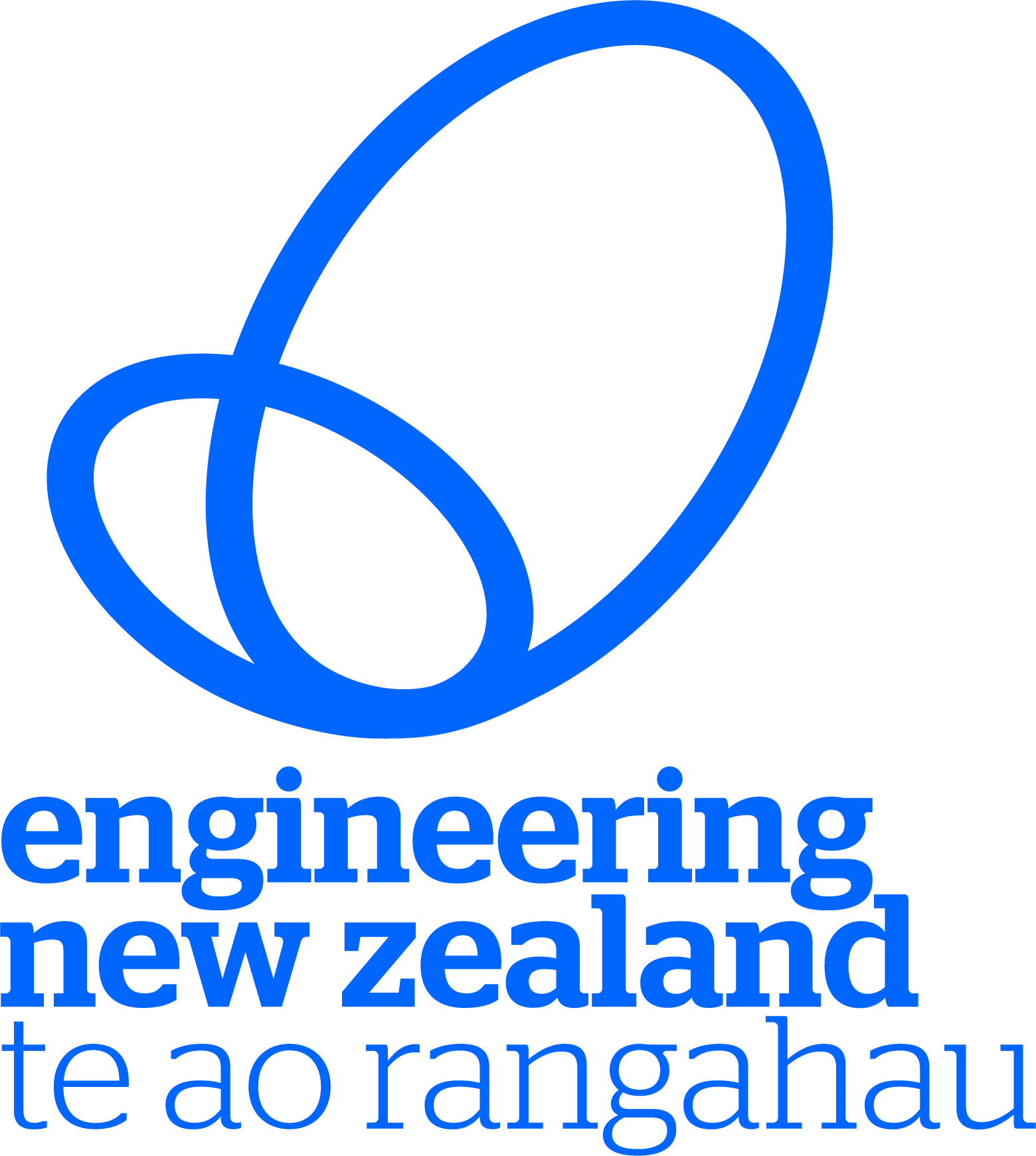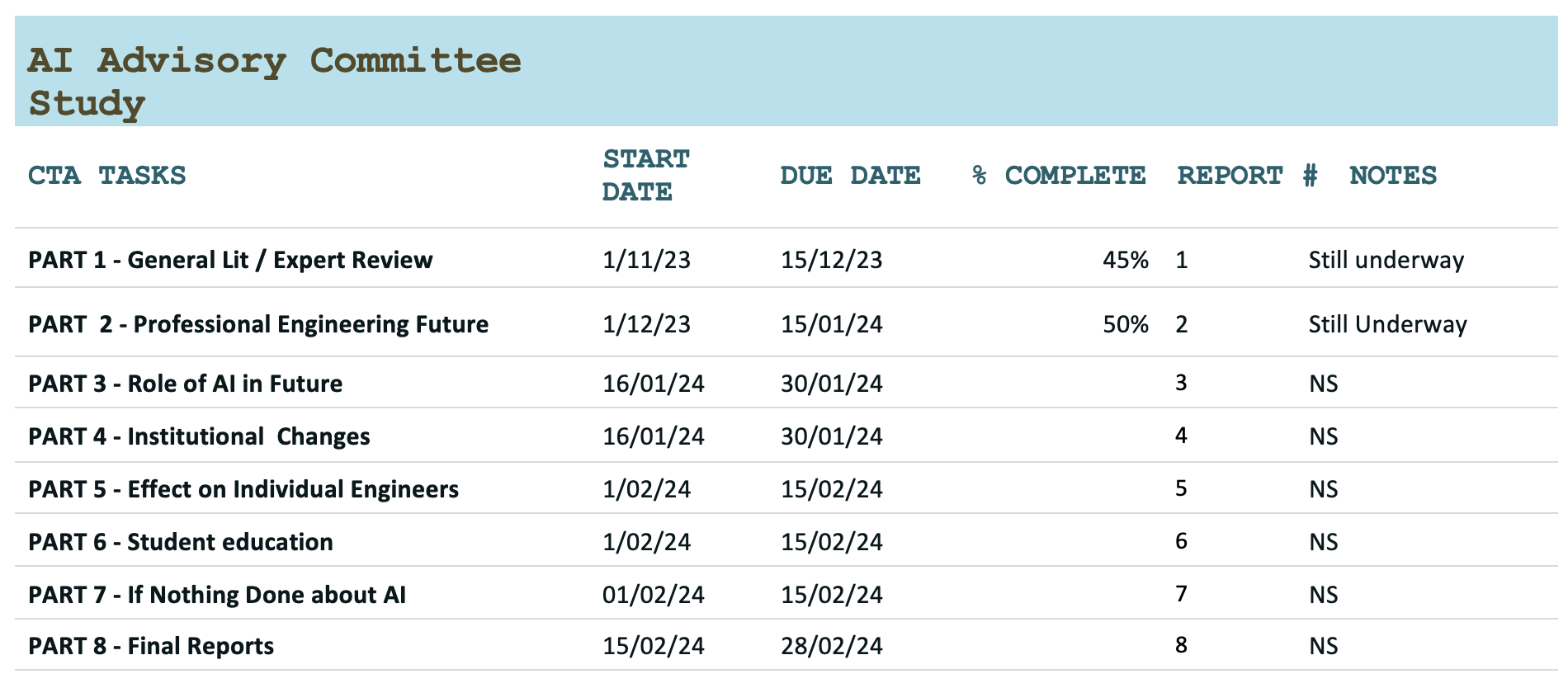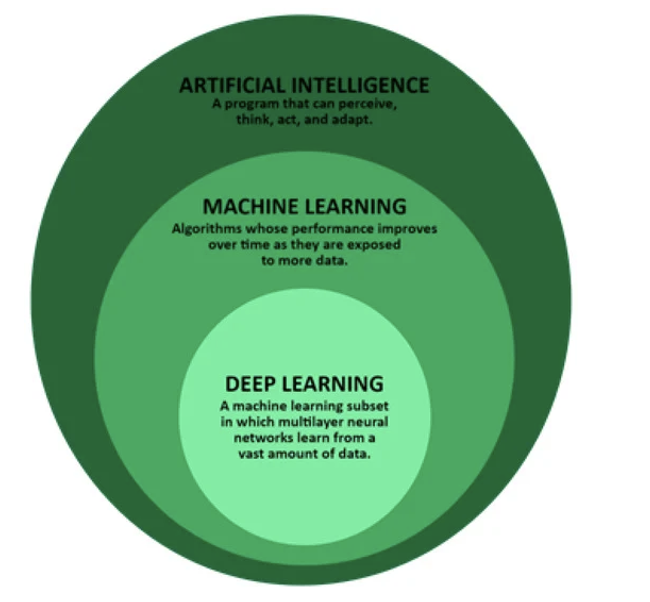
Chief Technical Advisor – Dr. Ir. Ron McDowall ONZM
As the engineering landscape undergoes significant transformation, influenced in part by advancements in Artificial Intelligence (AI), there is a pressing need for the engineering profession to align its strategies, capabilities, and regulations. Engineering New Zealand, recognizing this imminent shift, has set up an advisory committee to lead this alignment, ensuring that New Zealand’s engineering profession remains relevant, responsive, and resilient.
1. PURPOSE:
The Advisory Committee on AI is established to:
- Advise on potential impacts of AI on the engineering profession in New Zealand and the Engineering New Zealand organisation.
- Recommend strategies, policies, training, and best practices for integrating AI within the engineering domain.
- Guide the development and execution of a work programme for Engineering New Zealand on AI, which may include but is not limited to studies, training programs, thought leadership, articles, presentations, and partnerships on initiatives.
- Offer insights and recommendations on forming partnerships with other professions or industries on initiatives, or the government on regulation requirements, as needed.
2. SCOPE:
The advisory committee will focus on:
- Understanding the broader implications of AI for engineering.
- Identifying potential risks, opportunities, and areas of growth in relation to AI.
- Assessing the current state of AI in the engineering profession and benchmarking against global standards.
- Advising Engineering New Zealand on the development of its work programme on AI, ensuring that it is robust, relevant, and reflects the current and future needs of the profession.
- Collaborating with various stakeholders to foster multi-disciplinary partnerships and engage in dialogue concerning regulatory frameworks.
3. CTA RESEARCH:
The CTA is required to study the AI landscape as it pertains to engineering and in particular will focus on the elements shown.
- The study will be dynamic and will evolve based on feedback from the committee. The initial scope of the study includes the future of professional engineering, the role of AI, and how the institution might change to meet this challenge. The study may also look at the effects of AI on individual engineers and their work, as well as the education of engineering students at the tertiary level. It is also proposed to add a section on what will happen if the institution does not do anything about AI.
- The study aims to provide an envisaged and detailed exemplar of the future of professional engineering and AI’s role in it, and how Engineering New Zealand might change to meet this challenge.
- The study will be dynamic and iterative, with exemplars being circulated to the advisory committee for feedback and discussion. The study will also draw on the existing literature and interviews with experts in the field of AI and engineering. A draft of the study agenda or work plan will be distributed to the committee members for their input.
- The study will explore how AI can enhance the engineering profession and create new possibilities for innovation and impact. It will also address the ethical, social, and technical issues that AI poses for engineering, such as data privacy, bias, accountability, and regulation. The study will consider how engineers can adapt to the changing landscape and acquire the skills and competencies needed for working with AI.
- The role of the advisory committee is to provide guidance, advice, and feedback to the study and the institution. The committee will also help to disseminate the findings and recommendations of the study to the wider engineering community and the public when complete.
4. PRELIMINARY STUDY INFORMATION AND REPORTS:
- Study information and research and videos will be placed on this web page for committee members to view whenever they want to.
- The CTA’s Professional Journal entries pertaining to this study will be made available on a weekly basis on this web page.
- Monthly reports starting end December 2023 will appear here on this web page as a historical document.
5. STUDY WORK PLAN:

6. CTA’S PROFESSIONAL JOURNAL DAILY ENTRIES:
Download (PDF): Professional Journal 2023 AI Extract
7. ITERATIVE EXEMPLARS FOR COMMITTEE FEEDBACK:

8. VIDEO EXEMPLARS LINKS OF AI FOR MEMBERS TO VIEW:
9. MONTHLY REPORTS:


